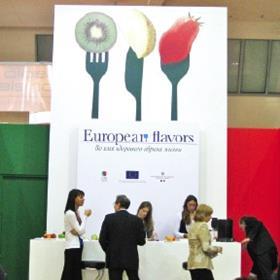
A major campaign to encourage increased consumption of European fruit and vegetables in places such as the US, Russia and Japan is set to focus on kiwifruit over the coming months through a series of promotional events in target countries.
The European Flavors project, which is financed by the European Union, the Italian government and Italian marketing and research agency Centro Servizi Ortofrutticoli (CSO), aims to boost awareness of European kiwifruit – of which Italy is the dominant player in terms of export volume and sales – in emerging overseas markets.
The scheme is approaching the end of its initial three-year period, during which time a total of €4m have been invested in promoting a range of European products such as oranges, pears, plums, peaches, nectarines and kiwifruit.
The majority of the fresh produce included in the project have PGI (Protected Geographical Indication) status.
Accordiing to statistics provided by CSO, Europe produced approximately 660,000 tonnes of kiwifruit in 2009.
Italy remains the continent's largest kiwifruit producer, although production this year is somewhat lower than the five-year average at 380,000 tonnes.
Within Italy, four regions dominate production: Lazio, with 32 per cent of the total production area; Piedmont (21 per cent), Emilia Romagna (14 per cent) and Veneto (13 per cent).
In recent years, the country has typically exported more than 70 per cent of its national kiwifruit crop, with around 350,000 tonnes shipped mainly to other EU countries.
Italy's main import partners for kiwifruit are: Germany, Spain, France, Poland, the UK, the Netherlands, Belgium and Lithuania.
Outside the EU, other important markets for Italian kiwifruit include Russia, the US, Canada, Brazil, Switzerland, Australia, UAE, Taiwan, Argentina and Norway.
'After the good results of the 2008/09 period, European Flavors this year continues with a series of actions aimed at increasing knowledge and appreciation of European fresh and processed fruit and vegetable products aimed mainly at operators of the sector,' said a spokesperson for the project.
'After our participation at World Food Moscow and the promotion of peaches and nectarines on the Russian market, kiwifruit is now the object of our promotional activities in the US and Russia, countries which have good potential for increasing consumption of fresh fruit and processed vegetables of European origin.'



